|
Topic author:
SilverhawkUSA
Subject: "Prince of Death" Road Trip
Posted on: 13 Nov 2007 23:33:30
Message:
Chiang Mai –Thoed
Thai
November 7,2007
Route: 107-1089-3051
David Unkovich, Honda Africa Twin 750
David Early, Suzuki DR650
Photos by:GT_Rider / Silver Hawk
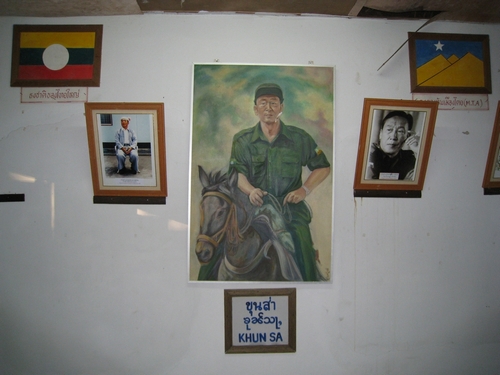
Khun Sa died in Burma on 26 October 2007. If you don’t know who Khun
Sa is, then you are missing out on many of the legends and mystique of
traveling the Golden Triangle. To
many he was known as a
freedom fighter trying to establish a home state for the Shan,
fighting for freedom from the Burmese. For others he was called the
Prince of Death or the Prince of Darkness. A ruthless war lord who
controlled the opium production in Northern Thailand and the Shan and
Wa area’s of Burma. He had a standing army of 20,000 men and a one
million dollar price on his head from the U.S. Government/D.E.A. An
internet search will bring up many fascinating stories.
He was cremated in Rangoon but the Thai village of Thoed Thai
scheduled a memorial service for him on Nov 8 and 9. Thoed Thai was
one of his former strongholds and his residence for many years.

Khun Sa country
Davidfl and I had a leisurely ride up Rte 107 to Thatong and then cut
over to Doi Mae Salong. Thoed Thai is about a 40 minute ride north
towards the Burmese border.
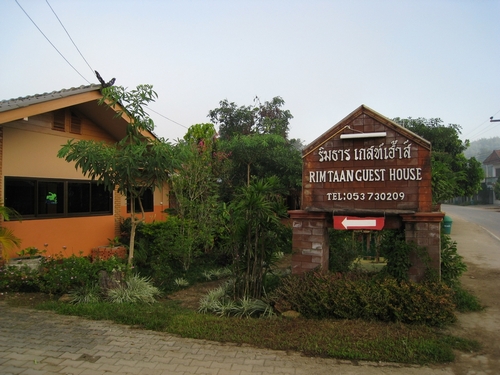
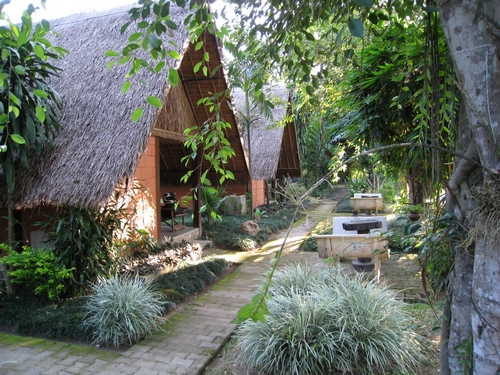
We had made reservations at the Rimtaan guest house which was located
on the river, in the center of town and great clean bungalows for
300baht. There are also some rooms with two double beds for 400baht.
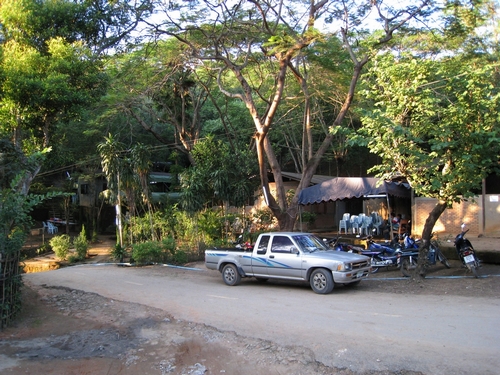
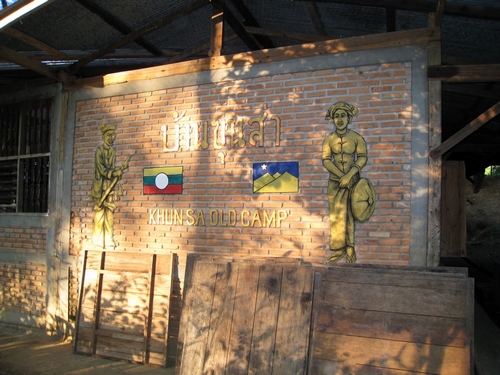
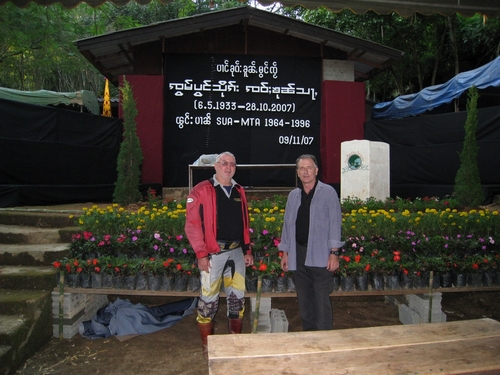
We arrived on the evening of the 7th and went up to Khun Sa’s
residence where they were making preparations for the following days.
This also is the location of the Khun Sa Museum which is open to the
public and contains a small amount of memorabilia. I am told that the
Thai government would not allow anything more elaborate.
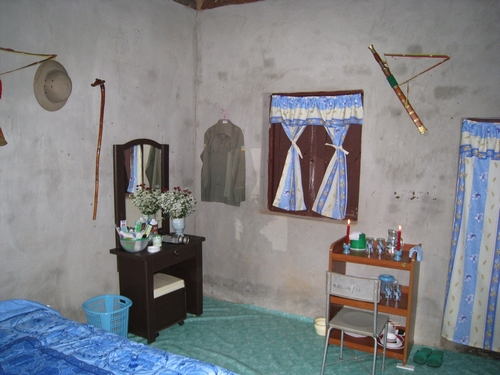
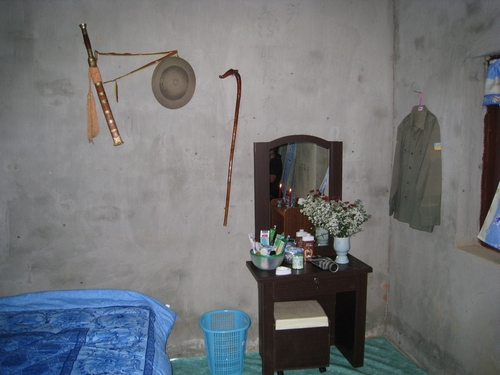
We were greeted by mostly smiling faces and for the rest of the
weekend we were treated like VIP’s. As it turned out we were the only
westerners present. We were told a couple others stopped by on the 8th
but didn’t return.
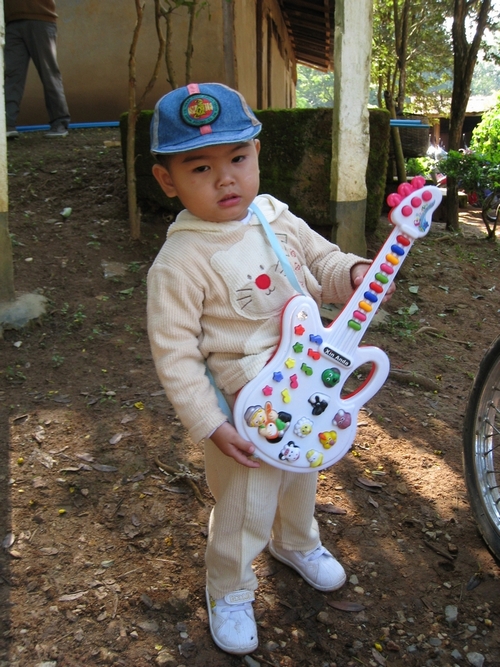
Even an Elvis impersonator.
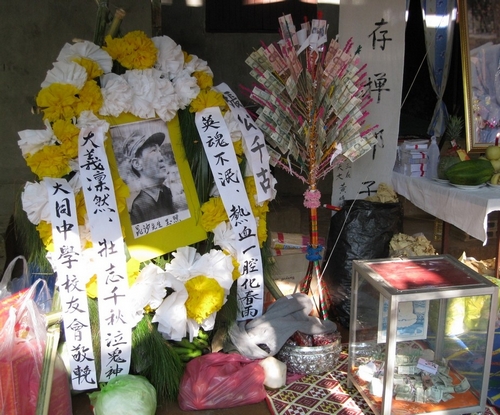
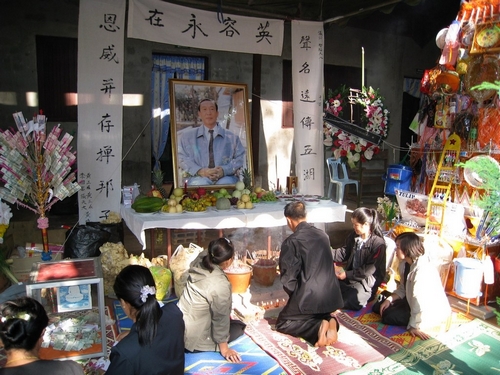
On the 8th the local residents came up in small numbers and everyone
paid their respects. We had met a fine gentleman who was the principal
of the Junior High School and one of the organizers. He made sure we
well taken care of and comfortable. He insisted that we be the first
to sign the provided guest books and write a message to Khun Sa.
Anyone that knows my past profession must laugh at the irony that I am
the first to sign Khun Sa’s memorial ledger.
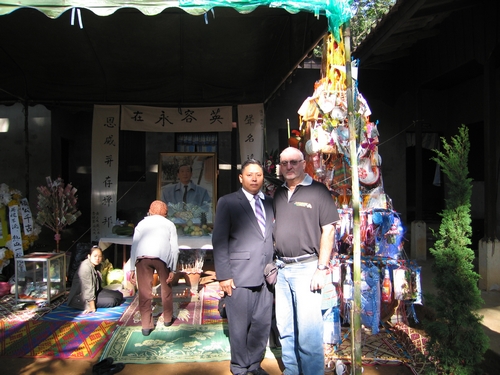
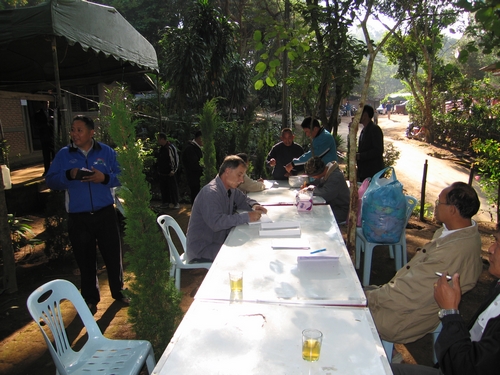
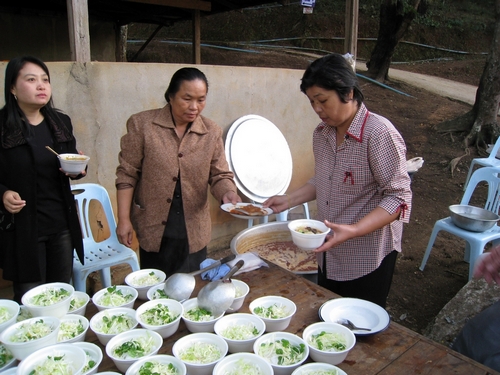
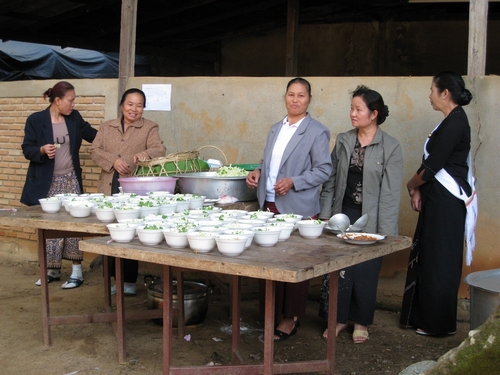
The women made sure that we were well fed with food provided to all
guests. If you know how any Thai festivity usually goes, we found it
rather strange how this was kept as a very somber and respectful
gathering and NO alcohol of any type was on the premises. The drink of
choice was hot tea.
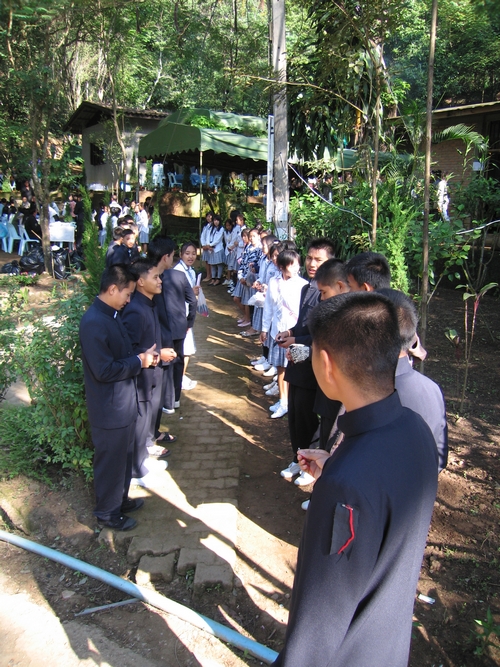
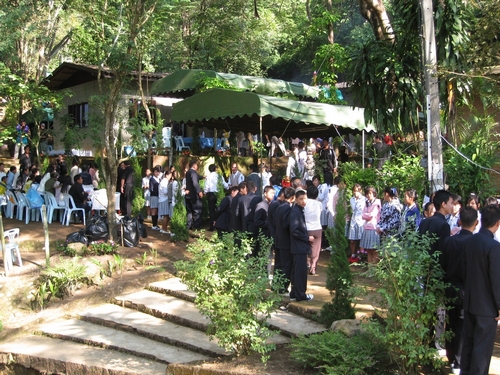
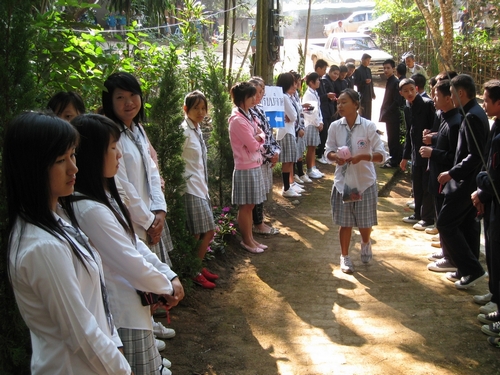
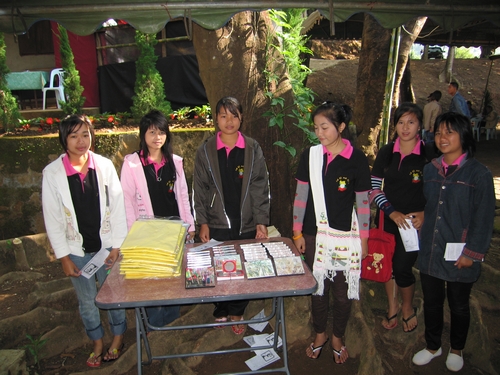
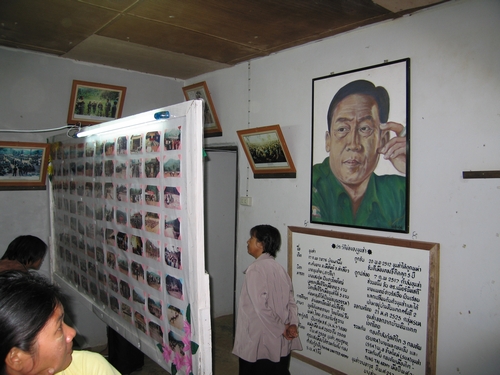
They were very well organized and even sold VCD’s of Khun Sa’s life
and history and a slide presentation ran throughout the day. 100’s of
photo were set up in the normally vacant museum areas.
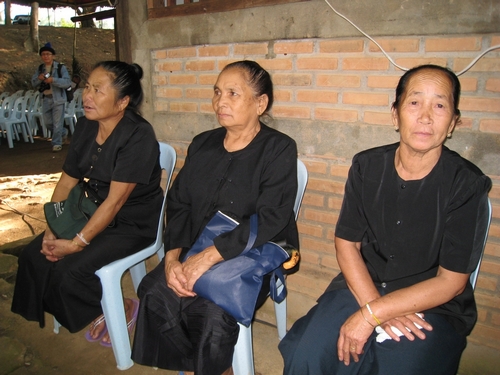
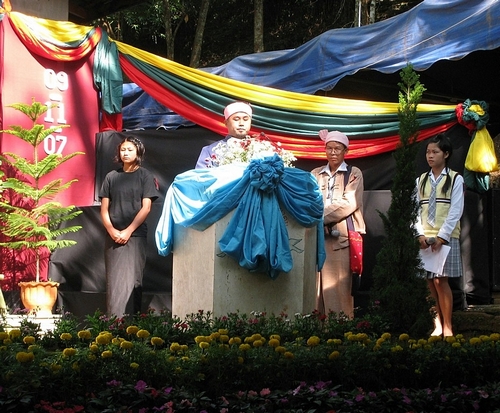
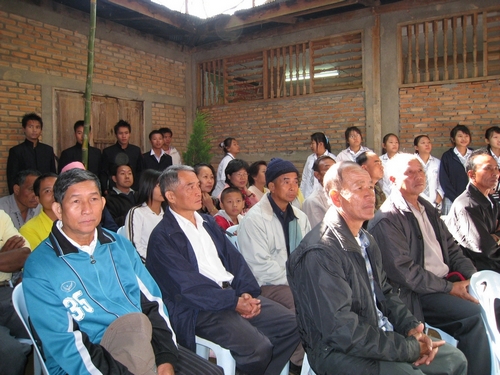
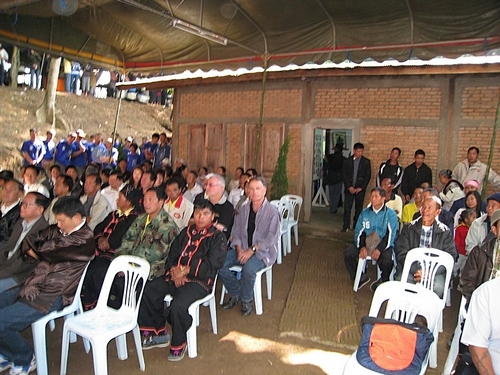
Although we tried to look inconspicuous (as if we could) we had as
many photographers taking photos of us as they did of the ceremony.
Many people spoke at the ceremony and translations to Thai was
provided by the school girls. One can only guess at the background of
some of the guests. We were asked to deliver a eulogy in English but
we both passed on that one!
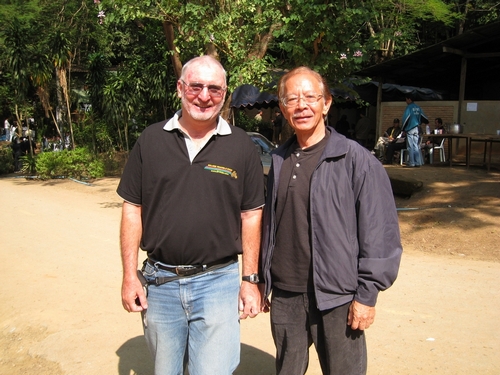
Owner of Rimtaan GH, “Johnnie” speaks several languages.
It was also explained to us that being Buddhist, the people must
remember the good someone had done. They explained that Khun Sa had
built the first paved roads into the area. He built the first school
and a new well equipped hospital. He built modern infrastructure to
handle water supply and electricity. Thoed Thai would not exist as it
does today with him. Freedom Fighter or Prince of Darkness? Definitely
depends on how you look at it.
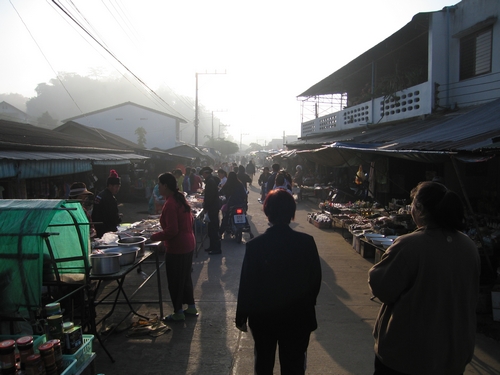
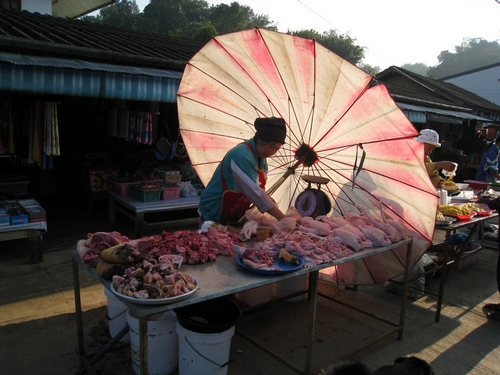
We awoke early each day in time to make the morning market which
seemed to finish about 7:30AM. I have no idea what time they started.
It was pretty chilly and the fog settled in overnight and just started
to clear as the market was underway.
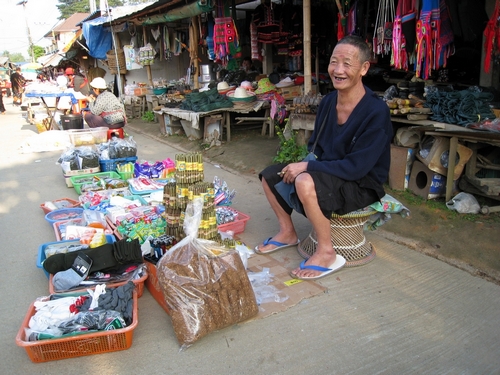
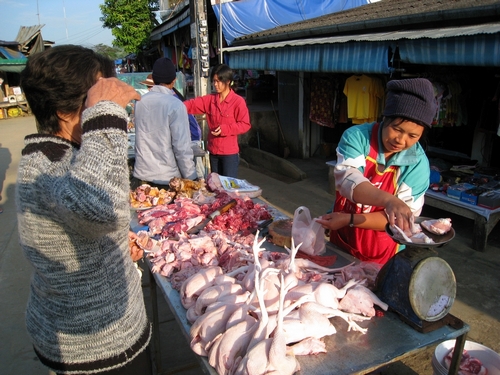
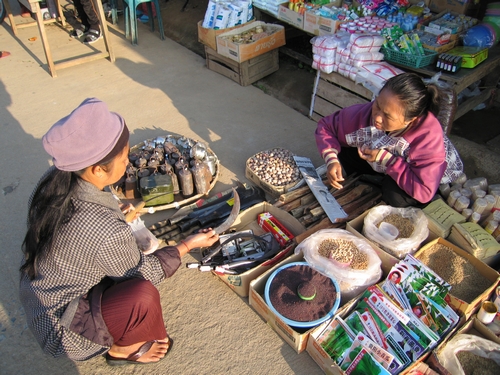
We found a lady that made great Lao style coffee which I love and we
stopped there both mornings.
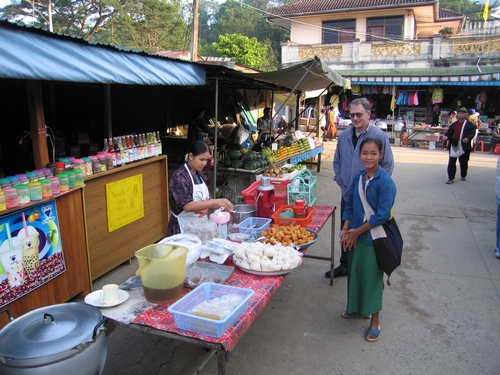
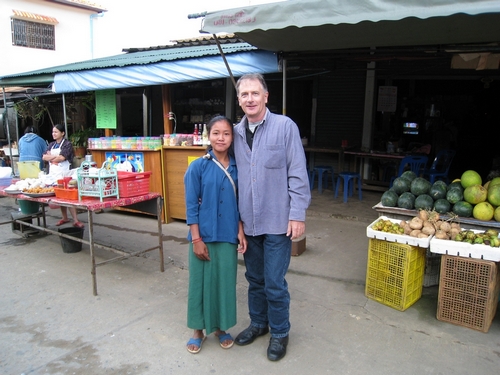
A young Tai Lai girl took an interest in me and was QUITE friendly.
She followed me all around the market and said she had never seen a
“farang” before (I’ve heard that one before). I had to tell her that
there could not be a wedding until they got ADSL in her village.
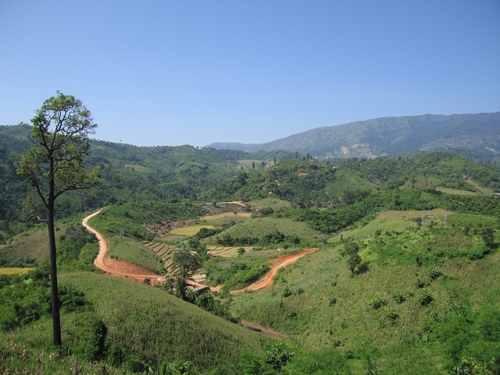
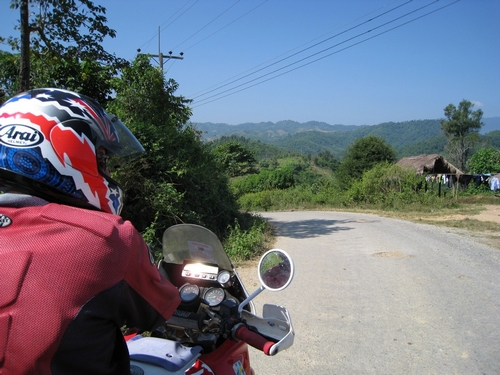
Davidfl and I spent the rest of the day exploring the roads leading
north to the Myranmar border. Mostly paved, and the sections that
weren’t, were currently under construction. It was beautiful scenery
without a cloud in the sky.
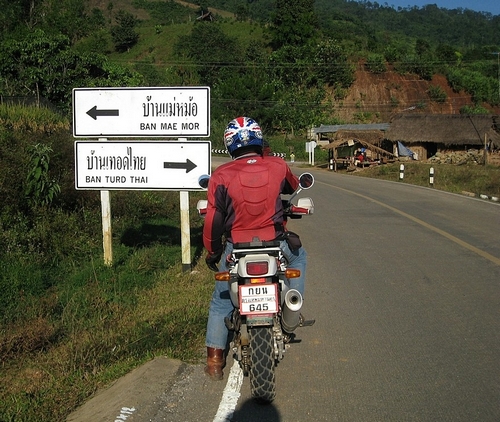
Possibly not the best choice of spelling.
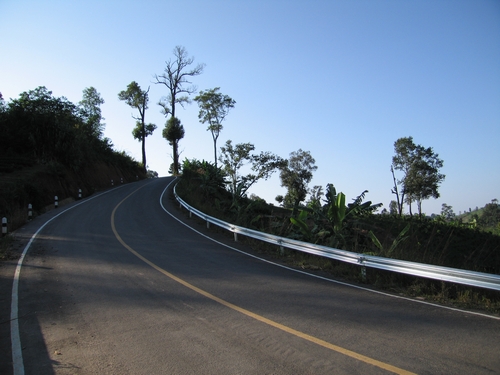
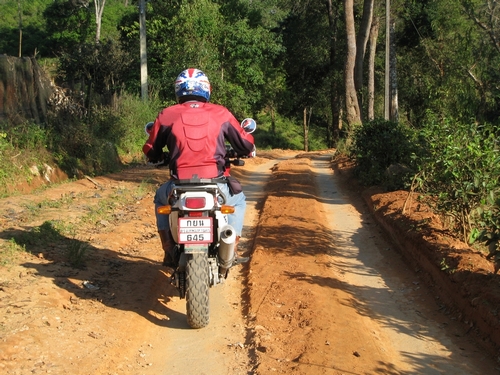
It was also good to see Davidfl handling the AT on these roads again
with out any trouble.
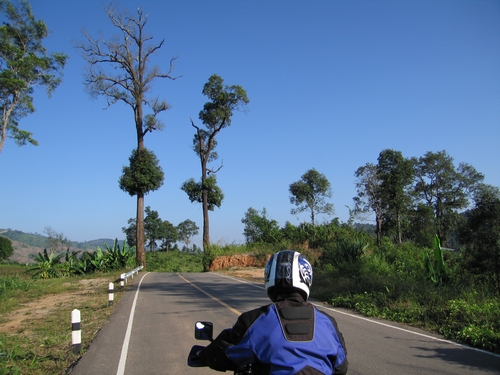
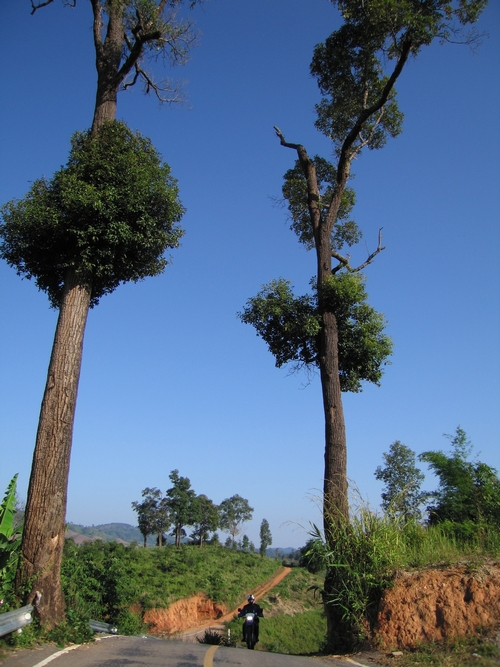
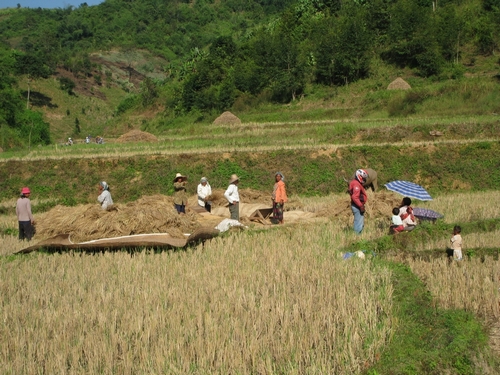
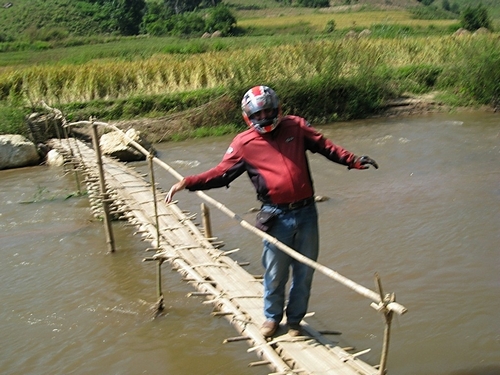
David is not shy about right out with the people and taking “in your
face photos”, but he gets some great shots sometimes.
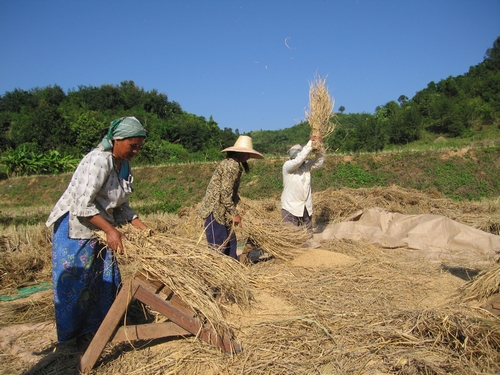
I give him full credit for this one.
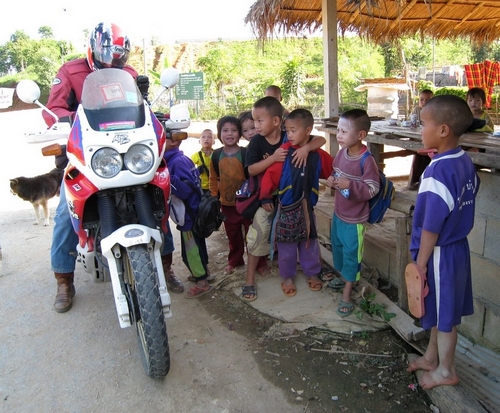
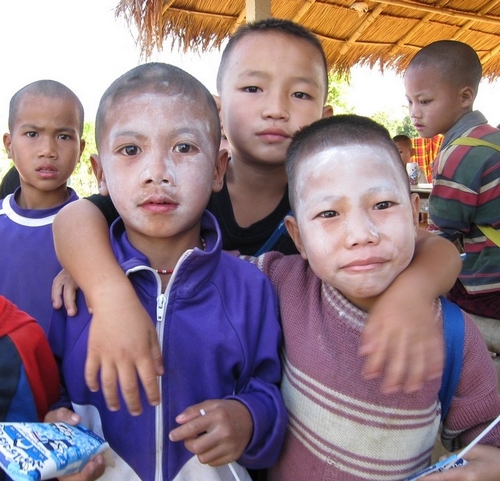
But I get lucky sometimes.
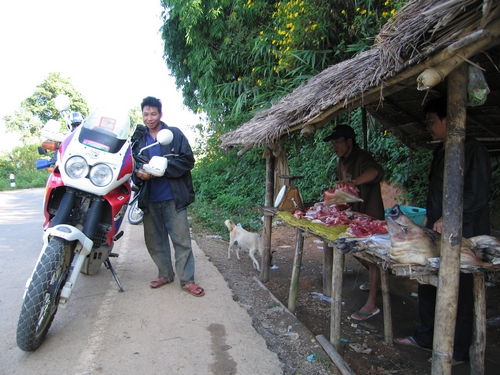
Roadside pork sellers.
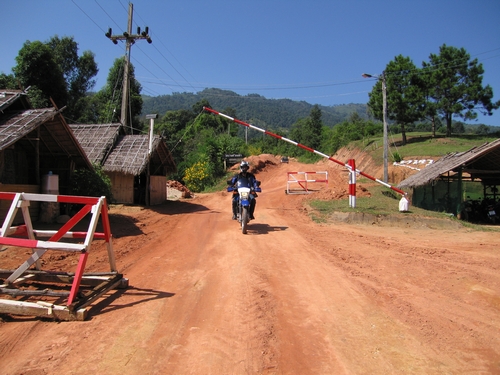
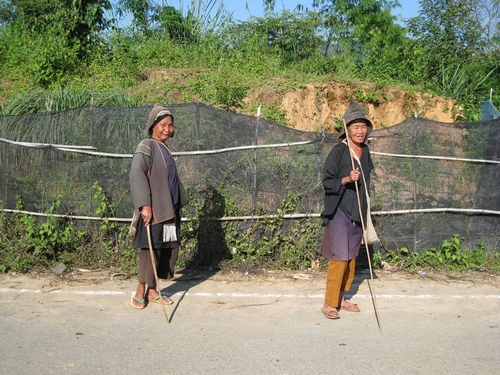
All in all, a very good road trip and whatever your feelings towards
Khun Sa, it is a part history and we can say we were part of it.
November 9th was my birthday. Not the first time I have spent it
in a strange place, but this is close to the top of the list.
Khun Sa - Opium
Warlord of the World - Burma
This is a great video report on Khun Sa
including an interview with my good friend, journalist Bertil Lintner.
quote:
3
November 2007 20:41
Khun Sa
Opium-trafficking 'Prince of Death'
Published: 01 November 2007
Chang Shi-fu (Khun Sa), guerrilla leader and drugs baron: born 17
February 1933; died Rangoon 26 October 2007.
He called himself a freedom fighter and, for more than four decades,
Khun Sa headed a ruthless guerrilla army which he said he was using
to win autonomy for Burma's Shan people.
Others were not so convinced. Around the world, drugs agents termed
him the "Prince of Death", saying that he and the drugs organisation
he ran from deep inside the jungles of South-east Asia were
responsible for murder, assassinations and bribery. At one point,
officials in Washington estimated that 60 per cent of the heroin
being sold on the streets of the United States came from opium
refined in the area under his control.
For years his area of operation was the so-called Golden Triangle,
that remote part of the jungle where the borders of Burma, Thailand
and Laos meet. His hideout – a virtual autonomous kingdom – was
equipped with satellite televisions, schools and surface-to-air
missiles. "They say I have horns and fangs. Actually, I am a king
without a crown," he once boasted to a reporter.
Khun Sa had not always sided with the Shan, one of Burma's many
indigenous peoples. In the early 1960s he formed a militia that was
loyal to the Burmese government and received money and equipment for
fighting against the Shan rebels. Before long he fell into conflict
with the government and served time in a Burmese jail.
When he was released in 1974 he returned to drug smuggling, renamed
his militia the Shan United Army and began using the outfit to fight
against the government again. He claimed he was doing so in the
cause of Shan independence but Khun Sa was able to use his position
to create leverage along the Thailand-Burma border and rapidly he
became one of the most important players in the drugs trafficking
business there.
He claimed that he was only involved in the drugs business to
further the cause of the Shan and on one occasion he offered to sell
his entire opium haul to the US government in exchange for money to
start economic development in the impoverished Shan areas. "My
people grow opium," he said. "And they are not doing it for fun.
They do it because they need to buy rice to eat and clothes to
wear."
He was born Chang Shi-fu in north-east Burma in 1933 to a Chinese
father and a Shan mother, later adopting the name Khun Sa. In his
younger years he served with the Kuomintang of China but left to
form his own army made up of a few hundred men. Though he had
received little education he learned military tactics, as well as
the business of opium dealing, from his time with the Kuomintang,
the remnants of which had been beaten by the Maoist forces and were
holed-up in Burma.
In the mid-1990s it appears that Khun Sa fell out with other Shan
leaders and again it became necessary for him to switch allegiances.
Though the US had offered a $2m reward for his capture, the former
warlord was able to make a deal with his one-time allies in the
Burmese regime and opted to move out of the jungle and enjoy a life
of relative ease and seclusion in Rangoon.
Andrew Buncombe
http://news.independent.co.uk/people/obituaries/article3115504.ece
|